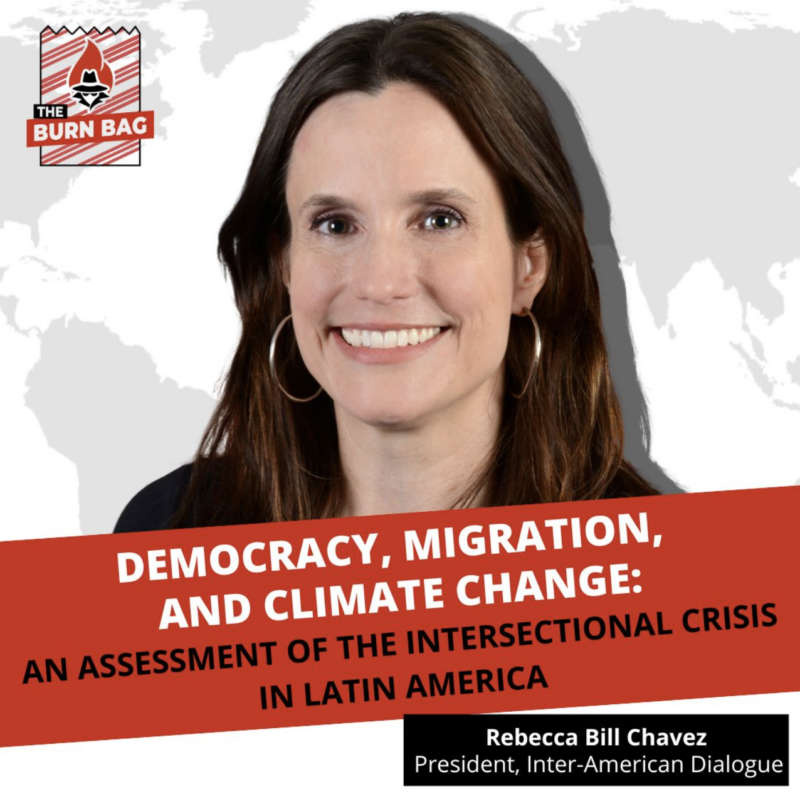Can Spain Solve the Cuba Problem?
By all accounts, Spain wants to bring change to the European Union’s Cuba policy. In so doing, it is tackling a foreign policy challenge that often sheds more heat than light.
Rebecca Bill Chavez, president and CEO of the Inter-American Dialogue, discussed the intersectional crisis in Latin America by assessing democracy, migration, and climate change in a conversation moderated by A'ndre, the host of The Burn Bag podcast.
Chavez analyzed the role of democratic decay in the region and its connection to both the migration and climate crisis. Chavez, who worked on Latin American affairs at the Department of Defense during the Obama Administration, talked about the main drivers of migration in Latin America and the internal dynamics of countries that both send and receive migrants. The conversation explored how anti-democratic political cultures have worsened the migration issue and how governments on both sides of the political spectrum have leveraged militarized law enforcement in response. Chavez outlined the impact of climate change on these challenges and also raised positive examples of international cooperation. For example, she highlighted the role of local leaders, such as mayors across Latin America, in addressing climate change and migration through dialogue and the sharing of best practices.
The Burn Bag is collaborating with the Climate Migration Council to conduct several episodes on the security risks surrounding climate change, amidst severe heat and climate-related crises that are gripping the country and the world.
By all accounts, Spain wants to bring change to the European Union’s Cuba policy. In so doing, it is tackling a foreign policy challenge that often sheds more heat than light.
When Haiti was struck by a devastating earthquake, the administration of U.S. President Barack Obama quickly absorbed the depth of the tragedy and necessity of a robust U.S. response. Unless the U.S. adopts a proactive role, Haiti’s fragmented political landscape threatens to deteriorate into a political vacuum that will compound the current crisis.
Politics is swirling everywhere. Such are the ways of democracies, especially when oppositions come alive and defeat or threaten incumbents.
 The Burn Bag
The Burn Bag